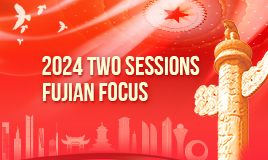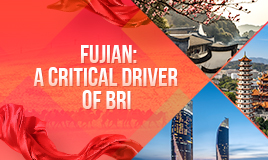Cultural tourism to the fore as domestic trips rise
"Performances at our new theater were often sold out, and standing-room tickets had to be provided, which was unimaginable in the past," said Hong Shijian, head of the Quanzhou Puppet Theater in East China's Fujian province.
Hong was referring to the well-received marionette performances at his theater over the Spring Festival, or Chinese Lunar New Year holiday, which ran from Jan 31 to Feb 6.
Quanzhou organized a number of activities for the period, encouraging tourists to visit cultural heritage museums and traditional Chinese opera houses to savor the city's flavor.
Cities across China have been creating tourism experiences based on local culture to attract more visitors, as many people avoided long-distance travel this year and stayed put to prevent the spread of COVID-19.
Online and offline cultural experiences are widely available in a number of different themes.
In Ningbo city in Zhejiang province, nearly 100 cultural tourism activities featuring local cuisine, folk customs, music and exhibitions were held during the Lunar New Year holiday at well-known scenic spots, towns and villages.
The city also distributed online coupons worth 1 million yuan ($156,873) to spur local tourism.
Cities like Harbin in Northeast China's Heilongjiang province, which is famous for its ice and snow-related tourism, have become hot destinations for tourists as the ongoing Beijing 2022 Olympic Winter Games draws global attention.
New offerings and consumption scenarios also give visitors fresh experiences.
During the seven-day holiday, Ningbo opened a cultural tourism market, pooling creative products and local food from neighboring cities, and adopting sales methods like blind boxes, VR, and livestreaming to increase tourist involvement.
Last month, China unveiled a development plan for its tourism sector. It aims to build a stronger, more modern system for the sector that integrates cultural development by 2025, with an improved barrier-free environment and services.
The integration of culture and tourism is a way for people to appreciate Chinese culture, enhance their cultural confidence, and promote organic integration of the social and economic benefits of tourism, said an official with the Ministry of Culture and Tourism.
Short-distance travel and independent, private tours were the choice of most tourists.
Orders for intraprovincial tours accounted for 65 percent of the total, increasing significantly compared with the holiday period in 2019, according to China's leading online travel agency Trip.com Group, formerly known as Ctrip.
The preferences of tourists are reflected in their booking of vacation rentals.




